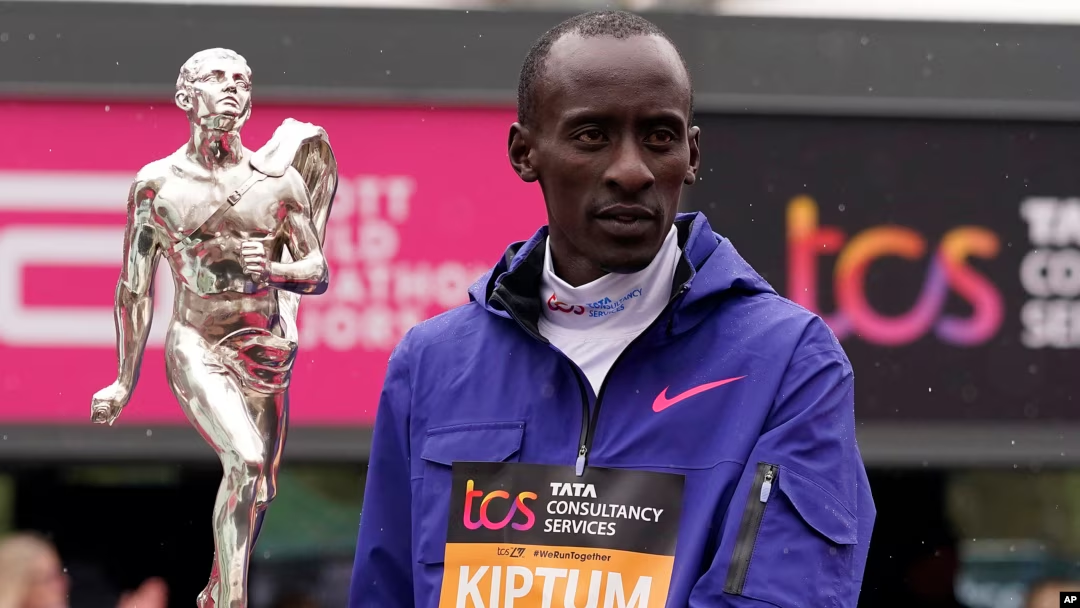Kenya had high hopes for the late world marathon record-holder Kelvin Kiptum, anticipating that he could break the two-hour barrier at the Paris Olympics. The head of Kenyan athletics described his untimely death as “devastating.”
Kiptum, a 24-year-old father of two, was tragically killed in a late-night car crash on February 11, just months after setting a new marathon record in Chicago with a time of 2:00:35.
The global shock of his loss has left sports fans reflecting on what might have been at the 2024 Olympic Games. “He was a young man; he was just coming up; he was only 24; and he had just broken the world record. And so everybody was really devastated,” Athletics Kenya president Jackson Tuwei told AFP.
Tuwei expressed sorrow that Kiptum was expected to excel in the Olympics and potentially break the marathon record below two hours. “Everybody was looking forward to having him in good shape so he could break another record. What we need to do now is to follow up and see how we can support the family,” he said.
Despite competing in only three marathons—Valencia 2022, London 2023, and Chicago 2023—Kiptum won them all, posting three of the seven fastest times in history. His potential was acknowledged by global athletics leaders and fellow athletes.
Kenya’s President William Ruto, World Athletics chief Sebastian Coe, and top runners including David Rudisha attended Kiptum’s funeral in Kenya’s athletics heartland, where he was born, trained, and tragically died.
“Kelvin was such a wonderful athlete. He showed the world that there’s still more that can be achieved,” Rudisha told AFP. Rudisha, the 800m world record holder, admired Kiptum’s rapid rise to fame and his impressive achievements.
Kiptum’s death is a significant loss for Kenya and the sport of athletics. As Rudisha noted, “He was very impressive. He came up within a very short time. Nobody really knew him that much until he broke the world record. It was really sad for Kenya, because when we have such athletes, who bring pride into our country—and especially in a year like this when he was at the top—we were expecting that he could win an Olympic medal. It was a great loss for Kenya and a great loss for sport.”
While mourning Kiptum’s loss, Rudisha, now retired at 35, is optimistic about the future of athletics. He highlighted promising athletes such as Kenya’s Emmanuel Wanyonyi, Canada’s Marco Arop, and Algeria’s Djamel Sedjati, who recently set a world-leading time. Rudisha looks forward to the competition at the Paris Games, where anything can happen, and everyone aims to win.
The legacy of Kelvin Kiptum serves as a reminder of the heights yet to be reached in athletics, and his tragic death underscores the loss felt by his country and the global sports community.



